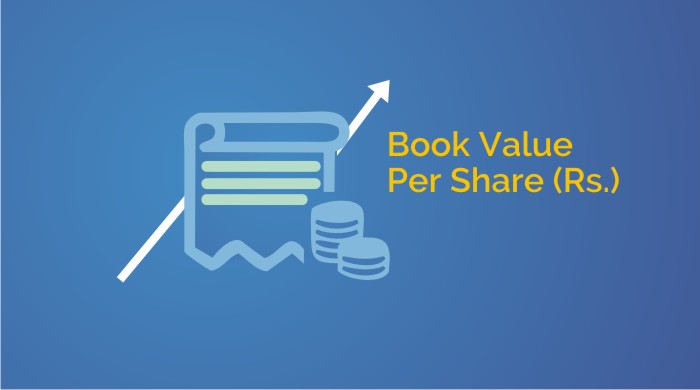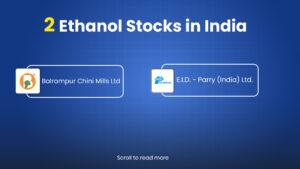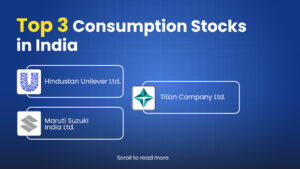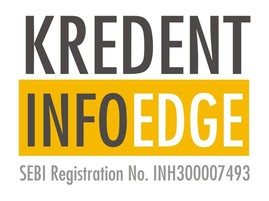Table of Contents
Book value is the value of the company’s assets which can be received by the shareholders in the event of company’s liquidation or during bankruptcy. Thus its the residual value after paying off all the liabilities (debt, borrowings and payables) and preference holders in the event of liquidation. Thus it’s a true value of a business. Positive BV means that the assets are more than the liabilities and vice a versa. If BV is negative, that means the company will go in for insolvency proceedings.
You can also watch the below video on Everything you want to know about Book value per share:
Impact of Book Value per Share
BV is a company’s net asset value. At the time of liquidation of a company, the book value indicates the amount each shareholder will receive after all assets are liquidated and all the liabilities are settled. This ratio is used by investors to determine whether a stock price is undervalued or overvalued. If the price to book value per share is less than one, it means that the stock is trading below its book value.
If a business can increase its Book Value per share, investors may view the stock as more valuable, and the stock price may increase further. BV is majorly arrived at taking into account historical prices of assets thus market value should be the best judge for any investment or liquidation decision. Market value takes into account the future growth prospects of the company.
How does Book Value increase or decrease
If the company goes in for buybacks or open offer then the book value of the share decreases. This increase or decrease happens due to change in Total Outstanding shares. Again if the Total Assets increases or liabilities reduces then also the BV increases and if the Investments (a part of Assets) are sold off or debt is increased (in the liabilities side) then the BV decreases.
Exceptions
The BV per share of different companies from different sectors cannot be compared since it shows a major variation. Hence, the formula is restricted to different companies in the same sector. If we compare between sectors it will show a major aberration. Secondly, the Assets under management are not valued at market price in the balance sheet and thus represents the value at the time of its purchase and also the depreciation shown can be more than what is actually shown.
Formula
Book Value per share = Total Equity – Preferred Equity/ Total Outstanding Shares
Suppose a company’s total assets is Rs 12 crores and liabilities is Rs 2 crores, its preferred Equity is Rs 3 crores and the total outstanding shares are 3.5 crores, then its book value per share = {(12-2)-3}/3.5= Rs 2
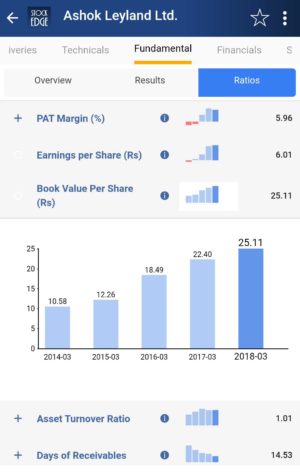
Check Out Also: Difference Between Face Value, Book Value And Market Value
Stockedge App
Hey, with the StockEdge app we don’t have to calculate BV per Share. StockEdge gives us Book Value per Share of the last 5 years of any company listed in the stock exchange. We can look and compare BV per Share of any company and filter out stocks accordingly.
Suppose we want to look at the Book Value per Share of Ashok Leyland of last year. In the Fundamental tab of Ashok Leyland, click on the fundamentals tab, we will get the Ratios tab. Then in the Ratios tab click on Efficiency Ratios, and we get the Book Value per Share in minuscule of a second.
Bottomline
Book Value per share is an important barometer to look at how the company is valued with respect to its assets. With the help, of these ready-made scans you can with the click of a button filter out good companies. So, what are you waiting for? Subscribe now to use this free feature for your investment clarity.
Visit StockEdge website to explore more.
If you want to know more then visit our YouTube channel.


